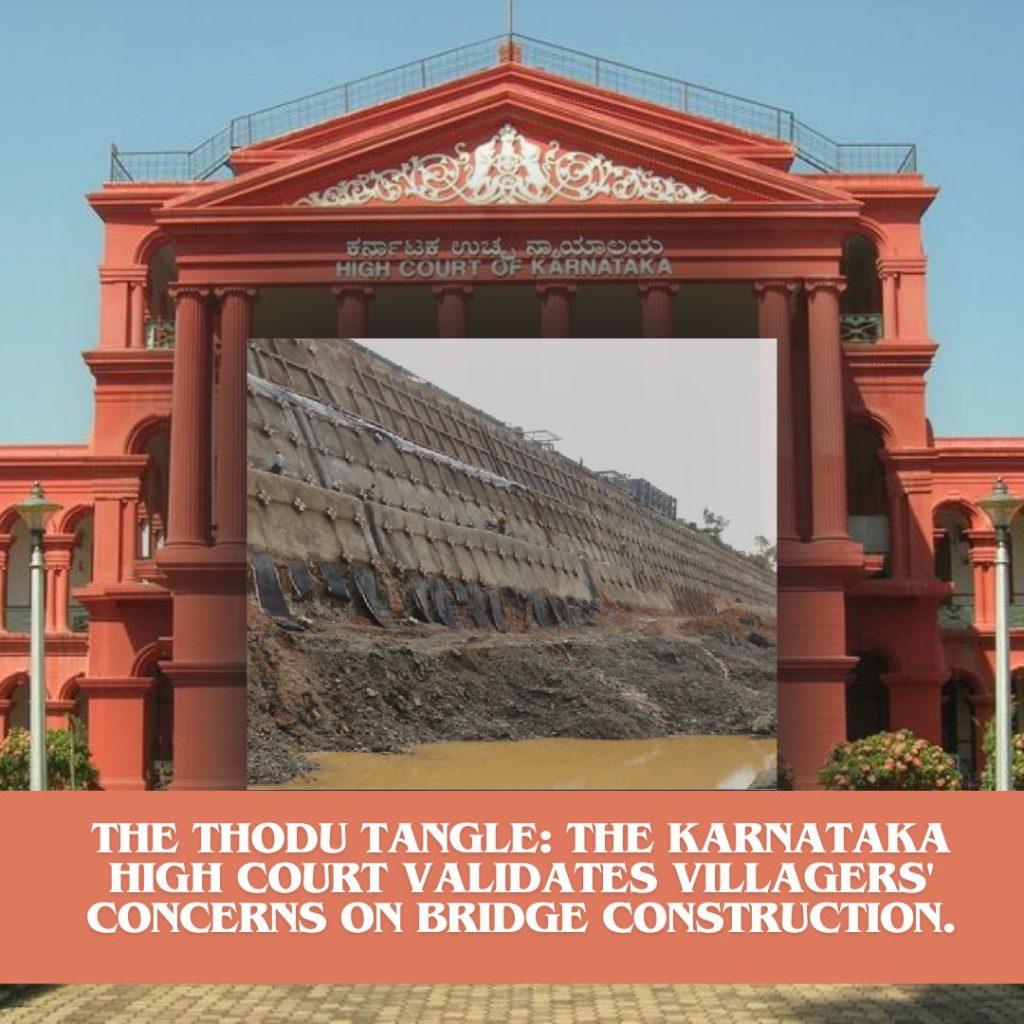Occupants’ Rights Upheld: Supreme Court Orders Rehabilitation or Compensation Under Town Planning Scheme.
CASE TITLE – Jaffar Ali Nawab Ali Chaudhari & Ors. v. The Municipal Corporation of Greater Mumbai
CASE NUMBER – Civil Appeal No.… of 2023 (Special Leave Petition (C) No. 4441 of 2020)
DATED ON – 06.11.2023
QUORUM – Justice Vikram Nath & Justice Rajesh Bindal
FACTS OF THE CASE
The appellants were found to be in possession of the property in dispute from the year 1976 onwards. It was even assessed to tax by the Municipal Corporation. The litigation started with the issuance of notice dated 20.02.2001 under Section 314 read with Section 394 of the Mumbai Municipal Corporation Act, 1888 to Nawab Ali Suleman, predecessor-in-interest of the appellants. The same was challenged by filing a Civil Suit, which was decreed on 27.03.2003 restraining the Corporation from taking any action against the occupants in pursuance of notice dated 20.02.2001. Subsequent thereto, fresh notices dated 17.01.2004 and 22.06.2007 were issued to the predecessor-in-interest of the appellant under Section 89 read with Section 165 of the Act. Earlier notice was replied to on 22.01.2004. However, still without considering the reply filed by stand taken by the predecessor-in interest of the appellants in pursuance to notice dated 17.01.2004, an order was passed on 25.06.2007 under Section 89 of the Act calling upon him to surrender possession of the plot. The same was challenged by filing the Civil Suit. During the pendency of the aforesaid suit, Nawab Ali died, and the appellants were brought on record as his legal representatives. The suit was decreed by the Trial Court on 29.09.2011 holding notices dated 17.01.2004 and 22.06.2007 and order dated 25.06.2007 illegal. The respondent being aggrieved against the judgment and decree of the Trial Court preferred appeal before the High Court. The appeal was accepted by the High Court. The aforesaid judgment and decree of the High Court was impugned in this said appeal. The short argument raised by learned counsel for the appellants is that in terms of the Town Planning Scheme, as notified on 01.08.1994 and the subsequent circulars issued by the Corporation from time to time, the appellants who are in possession of the property in dispute are entitled to be rehabilitated or paid compensation. The genuine claim of the appellants is not being considered though undisputedly they were found to be in possession of the property in dispute from the year 1976 onwards.
ISSUE
Whether it is within the Appellants’ rights to ask for consideration of their claim either for allotment of an alternative site or compensation for the premises in their use and occupation.
COURT ANALYSIS AND JUDGEMENT
After hearing learned counsel for the parties, The Hon’ble Supreme Court stated that the present appeal deserves to be allowed without going into much details for the reason that admittedly, the appellants were found to be in possession of the property in dispute from the year 1976 onwards as per census certificate dated 24.05.1978. They further stated that in terms of the Town Planning Scheme, notified on 01.08.1994 and subsequent circulars, the claim of any occupant of the property is required to be considered for rehabilitation or for payment of compensation. The appellants are still in possession of the property, which is stated to be coming in the alignment of 60 feet T.D. Road. It was noted that the only prayer of the appellants is that their claim for rehabilitation or payment of compensation be considered in terms of the Town Planning Scheme, which has not been considered. The Hon’ble Supreme Court held that instead of relegating the parties to litigate further, the present appeal can be disposed of with a direction to the Corporation to consider the claim of the appellants in terms of the Town Planning Scheme either for rehabilitation or payment of compensation, and that the needful shall be done within a period of three months from the date of receipt of copy of the order.
“PRIME LEGAL is a full-service law firm that has won a National Award and has more than 20 years of experience in an array of sectors and practice areas. Prime legal fall into a category of best law firm, best lawyer, best family lawyer, best divorce lawyer, best divorce law firm, best criminal lawyer, best criminal law firm, best consumer lawyer, best civil lawyer.”
Judgement Reviewed by – Gnaneswarran Beemarao





